The US Army has been working on the Cold Temperature and Arctic Protection System for several years with limited fielding of developmental items to troops in Alaska including the 11th Airborne Division (Arctic).
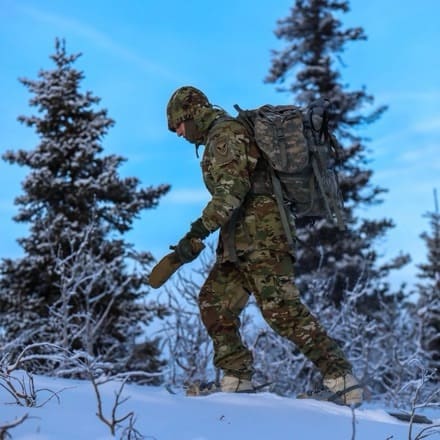
According to sources close to the effort, a formal requirement has been approved and both the name and scope will change. Currently, CTAPS is a multi-layer system that aims to keep Soldiers warmer in cold weather environments, spanning from 45 degrees Fahrenheit to -65 degrees Fahrenheit.
The new All Range Tactical Clothing will become an overarching program for all organizational clothing including other regions besides just Arctic.
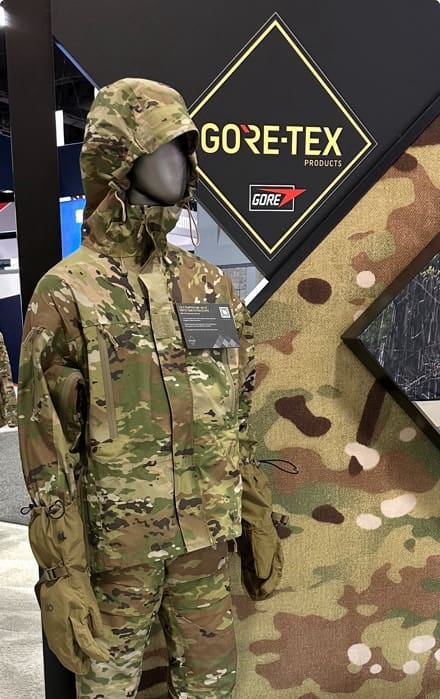
Many of the designs associated with CTAPS were created in house at Natick when the program concentrated more on materials than function. In the ensuing years, industry has introduced new styles which have strong Soldier acceptance. For example, the so-called 11th Airborne Jacket and Trouser was procured as a Commercial-Off-The-Shelf item and developed by SITKA Arrowhead.
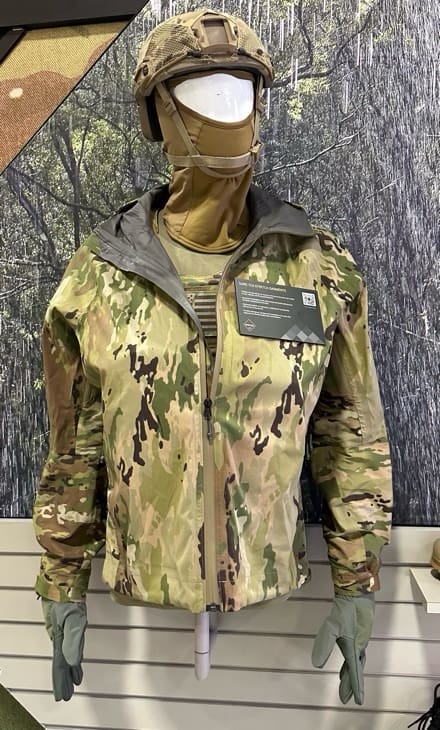
GORE-TEX Defense Fabrics has monitored the program and trickled out a couple of design concepts over the past few years, such as the stretch technology fabric seen above. But at this year’s AUSA they introduced us to an entire clothing system they call All Weather Integrated Clothing System (AWICS).
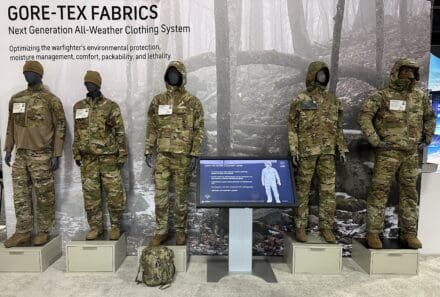
Here is the system. That compression bag you see at the bottom contains the whole system except for the softshell layer which is generally worn all of the time in cold regions and takes the place of the ACU or Combat Shirt and Trouser.
We’ll cover down on the individual mannequins from left to right.
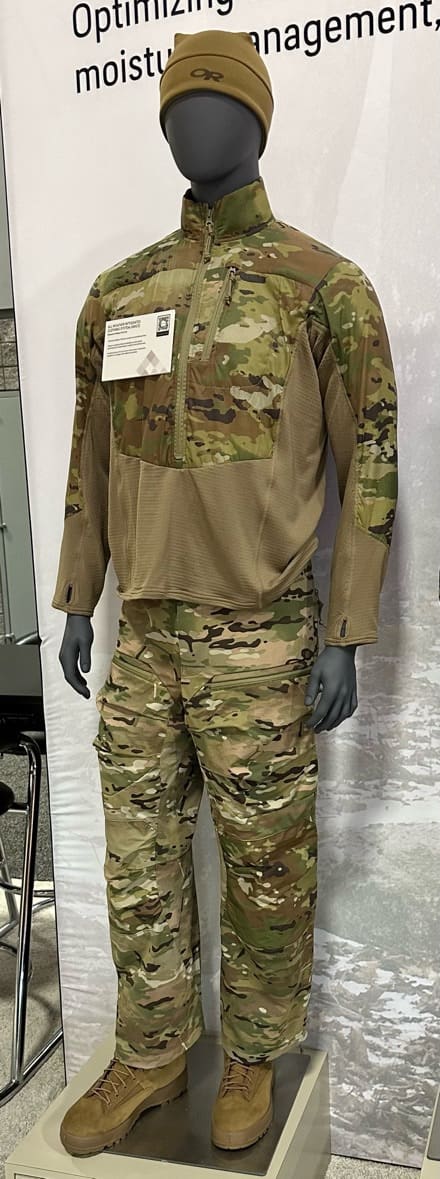
This is the Temperate Mid-Layer Pullover. It offers a great deal of moisture wicking and breathability.
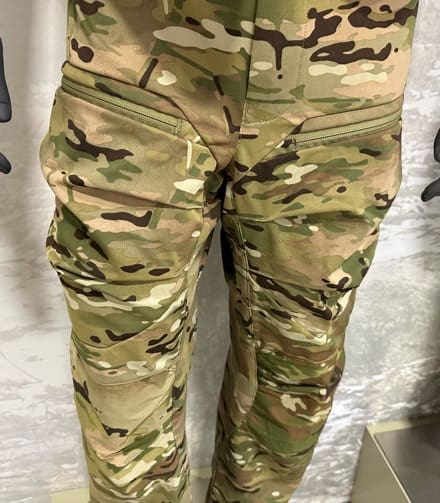
Here you can see the details of the trousers made from GORE-TEX WINDSTOPPER.
Next is the Weather Protective Active Insulation Jacket. It combines a WINDSTOPPER shell with Polartec Alpha Direct insulation.

It is paired with an insulated short with full side zips for quick donning and doffing.
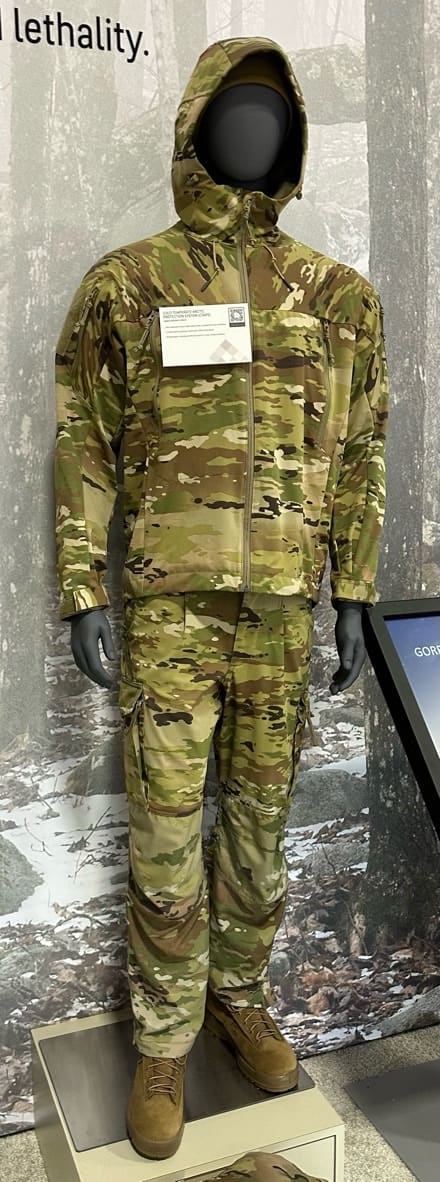
Next is the Softshell uniform which many are familiar with as Level 5 of Protective Combat Uniform / MARS or Gen III ECWCS. In the Twight model codified by Alpinist Mark Twight in his book “Extreme Alpinism: Climbing Light, Fast and High” which our clothing systems are based upon, it is called the “Action Suit” and is the basic outer layer worn day-to-day. It’s made from WINDSTOPPER fabric for comfort, breathability, and durability along with its water shedding properties. Even when wet, it dries faster than other fabrics.
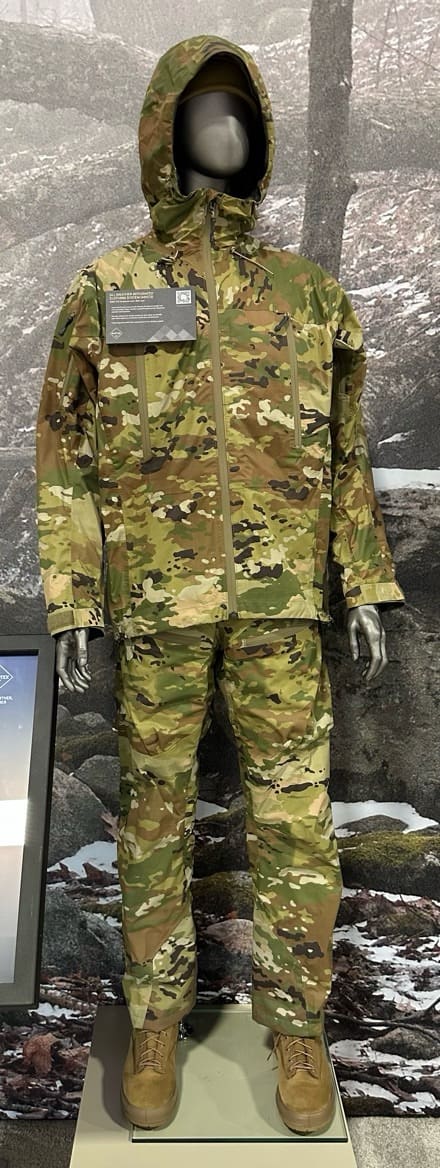
This is the GORE-TEX Temperate Cold/Wet Layer. It’s made from waterproof, breathable 3-layer fabric and incorporates features troops have been asking for such as pocket placement. This laminate is durably waterproof, totally windproof, and very breathable even after exposure to common battle field contaminates.
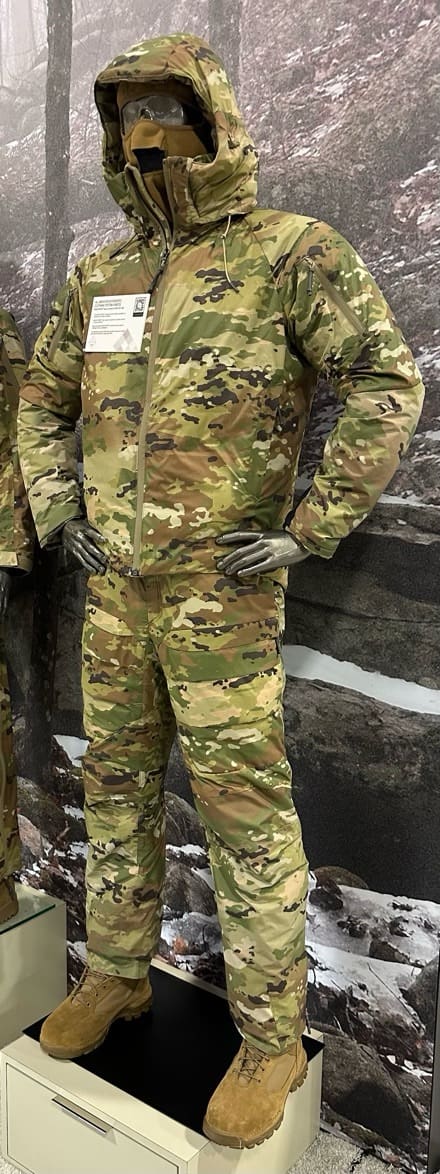
The final component is the Insulation Layer. Unlike with the current programs of record this doesn’t have a bulky Level 7 Bivy Parka. The GORE-TEX team has worked to reduce the number of garments and the insulation of the Level 7 can be obtained by combining various AWICS pieces.
The GORE-TEX Defense Fabrics development team is currently working on an employment wheel like the one used with USSOCOM’s PCU to assist with when and how to combine components of the system to get the desired effect.
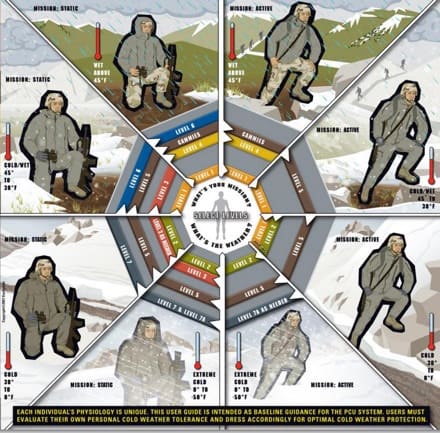
Hopefully, this system will get a look by the US military and that they remain open to commercial innovation.
To learn more about GORE-TEX Military Fabrics visit www.goretexprofessional.com/ausa.


The Current GEN III ECWCS is good kit but in need of significant updating. It was never designed for serious Arctic use and has far too many “garrison” modifications for things like patches and names tapes and the fleece jacket is FAR too bulky and heavy for the level of warmth it offers.
I do hope that the Army adopts this for the Arctic personnel only so that nothing is “watered” down, for appearance purposes, by a bunch of garrison CSMs on the Army Uniform Board.
Keep it a warfighter focused uniform and give it only to the personnel and units that need it.